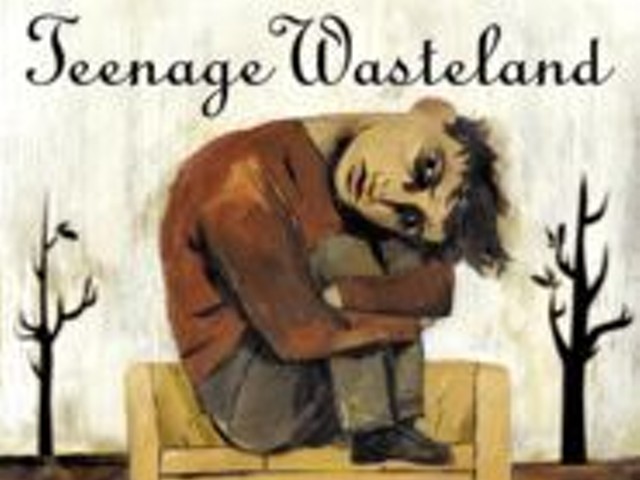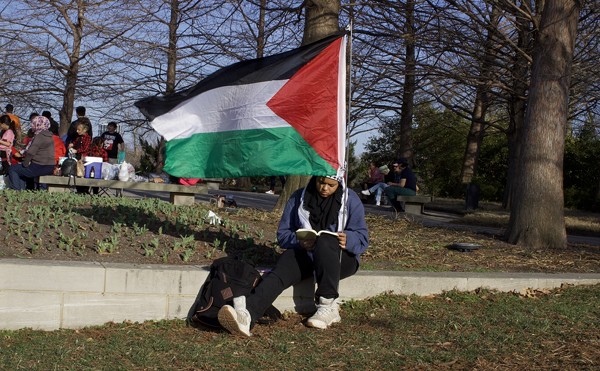"How can you be an Eagle Scout and a Communist?" it is asked.
Well, it isn't easy. On one hand, you grew up believing in the Scout Oath and laws. On the other, you espouse tax-and-spend liberalism, you hug trees, you hate white men and guns, you want to tear down our national defenses and you plot to destroy the fabric of American family life.
So cut me a little slack here while I try to make sense of the Boy Scouts' national battle for the inalienable right to discriminate against gay people. This morality business is complicated.
Last week, the U.S. Supreme Court heard arguments in the case of James Dale, an Eagle Scout and assistant scoutmaster, who was dismissed from his volunteer post in 1990 (he was then 19) after Scout officials learned, from a newspaper article, that he was a member of a gay-rights group at college. He had been pictured, horror of horrors, speaking at a forum on teen suicide among gays.
The dismissal had nothing to do with Dale's behavior or his record in scouting, which both sides agree was spotless. The Scouts simply told him that he was no longer morally qualified to be one of their leaders.
Dale sued under New Jersey's anti-discrimination law, and last year the New Jersey Supreme Court unanimously ordered his reinstatement as a scoutmaster. It was the first time the Scouts had lost a major court challenge to their longstanding policy of banning gay leaders, and they appealed.
(Truth be told, Dale's real name is James Dick, and it can be argued that he did a disservice to us all by changing it. Think of the joy we would have had watching stodgy justices, attorneys and TV commentators navigating the treacherous terrain of gay rights in the context of the Boy Scouts battling Mr. Dick.)
The case promises to be a landmark test, balancing Dale's civil liberties with the Boy Scouts' argument that theirs is a private organization that should be free to choose its own leaders without government interference. A key issue is whether the Scouts are, as Dale's attorneys argue, a "public accommodation" subject to anti-discrimination laws such as the one in New Jersey.
The Scouts claim that their mission is moral-character-building and that they must not be forced to accept Scout leaders who, in their view, don't meet the moral standards of the organization. In addition to gays, the Scouts reject atheists and agnostics for leadership, although their official adult application notes that the organization is "absolutely nonsectarian" beyond that.
During the arguments before the U.S. Supreme Court, several justices expressed skepticism that the government could or should mandate the group's moral standards. Asked Justice Anthony Kennedy: "Who is better qualified to determine their message -- the Boy Scouts or New Jersey?"
Dale's lawyer, Evan Wolfson, replied that the court had never allowed groups to subvert civil-rights laws with a "free-floating" right of association. It was noted that segregationists fought the civil-rights movement with the same argument four decades ago.
Other justices challenged Wolfson's argument that the Scouts should have to prove that admitting gays challenges their "expressive message," à la the NAACP's being required to admit Ku Klux Klan members. As Justice Antonin Scalia noted, that tack would virtually "induce the Boy Scouts to be more openly and avowedly opposed to homosexuality than they are now."
I think the conservatives have a point there: Why should the "right" to discriminate be reserved only for the most bigoted among us?
But is it a "right" we should have? If so, why not go back to the days when a private restaurant could choose not to serve to people on the basis of the color of their skin? If the Boy Scouts have the "right" to discriminate against gays -- even in a state, such as New Jersey, that specifically prohibits such discrimination -- then why shouldn't they be able to use their "private group" arguments against races or religions they might not consider moral?
Here's a simple answer: It's wrong. We've been there, done that, with regard to race and religious discrimination. We've said that even a private business serving the public -- the public-accommodation point -- cannot discriminate in such a manner, regardless of the personal views of the private owners of that business.
Some believe that sexual orientation is what you are: That would be like race. Others say sexual orientation is a choice: That would be like religion. In either case, the same protections should be afforded people: Law-abiding citizens should not be subjected to public discrimination in America. States like Missouri should adopt laws like the one in New Jersey regarding sexual orientation, and the courts should respect those laws.
What about the Boy Scouts' argument that their private organization does not constitute a public accommodation?
Consider this: In the Greater St. Louis Area Council, no fewer than 35 percent of Scout units are chartered by public schools or their related entities (such as PTAs), according to public-relations director Joe Mueller. That seems pretty public to me.
Mueller says the local council follows national guidelines but notes that the gay-rights issue has not surfaced locally, except to the extent that local volunteer scout leaders have privately expressed support for the policy. "This is not an issue in this council at this time," he says.
But even if gays are not suing or marching or otherwise complaining locally, the public here should not give sponsorship and sanction to any group that openly acts against individuals on the basis of their sexual orientation. Gays and lesbians are as much a part of the public as heteros are.
Besides, the Scouts' bigotry may not be limited to gays. During last week's arguments, Justices Sandra Day O'Connor and Stephen Breyer asked what would happen to a heterosexual Scout leader who espoused gay rights.
"I don't know how that would be resolved," replied George Davidson, attorney for the Scouts.
That spoke volumes to me, as a heterosexual who believes strongly in gay rights, because I realized that, despite my 26 merit badges (including some for citizenship) and my status as an Eagle Scout, it was indeed possible that I, too, might be deemed unfit to be a Scout leader. Worse things have been said about me, but it does beg a serious question: Just whose morality is this, anyway?
And whatever happened to Scouts' honor?





